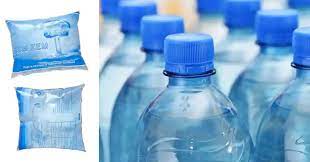Ghana Spent Nearly $11M on Water Imports in 2023 — NPA Confirms Amid Galamsey Fallout

In a startling revelation, the National Petroleum Authority (NPA) has disclosed that Ghana imported almost USD 11 million worth of water in 2023. The costly move reportedly stemmed from severe contamination of local water sources due to rampant galamsey (illegal mining) activities.
Contamination Crisis & Import Urgency
According to the NPA, the pollution from galamsey operations left key rivers and water bodies unsafe for treatment or supply, forcing the government to procure fresh water from external sources to meet public demand. (Source: Instagram post quoting NPA CEO)
The import was not merely a stopgap — it reflects the escalating environmental and public health pressures tied to mining runoff, siltation, heavy metal contamination, and erosion.
Economic & Public Health Implications
The $11 million water import bill adds another layer of economic burden on Ghana’s already stretched fiscal landscape. For context:
- The expenditure rivals some medium-scale public infrastructure budgets.
- It highlights how environmental degradation can translate directly into sovereign expenses.
- For communities dependent on contaminated rivers, the cost meant either paying higher rates or facing severe shortages.
Public health advocates warn that prolonged reliance on imported water could entrench inequality—urban and affluent areas may get prioritized while remote communities continue to suffer.
Reactions & Accountability
Critics have quickly seized on the revelation, calling for:
- A full audit of the import contracts and suppliers.
- Accountability from agencies responsible for environmental protection.
- Legal action against operators of illegal mines responsible for polluting key watersheds.
In Parliament, lawmakers have called for urgent investigations into how local water sources are managed and protected, pressing for tougher monitoring and enforcement on mining operations.
Meanwhile, some voices caution that the NPA figure needs independent verification, urging the release of detailed breakdowns — costs per cubic meter, source countries, logistics, and timelines for import.
What’s Next
To avert similar costs in the future, Ghana must:
- Arrest environmental damage by curbing illegal mining, rehabilitating degraded watersheds, and enforcing strict pollution controls.
- Invest in local treatment infrastructure so that even compromised water sources can be purified safe for use.
- Promote water security policies, diversifying supply (rainwater harvesting, boreholes, reservoirs) to reduce reliance on imports.
If unchecked, what appears now as a reactive import measure may become a recurring budget line, draining resources that could otherwise fund education, health, or infrastructure.
www.nsemgh.com

